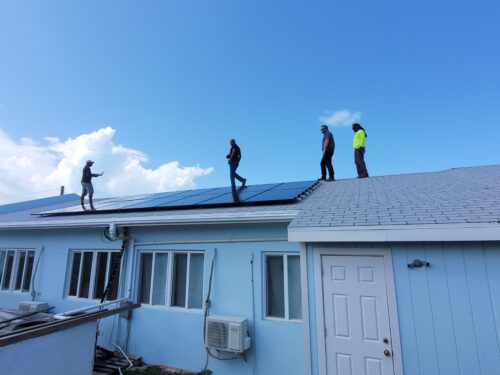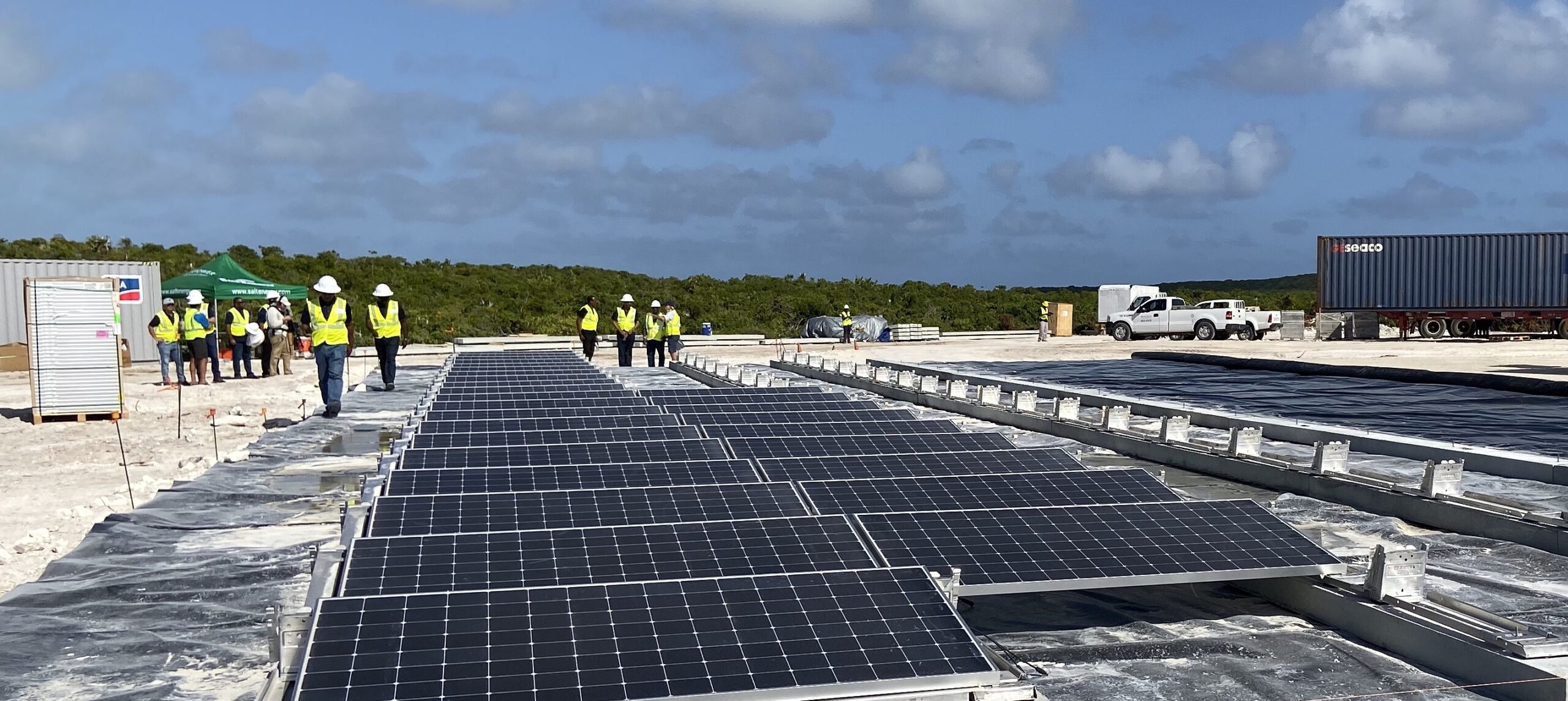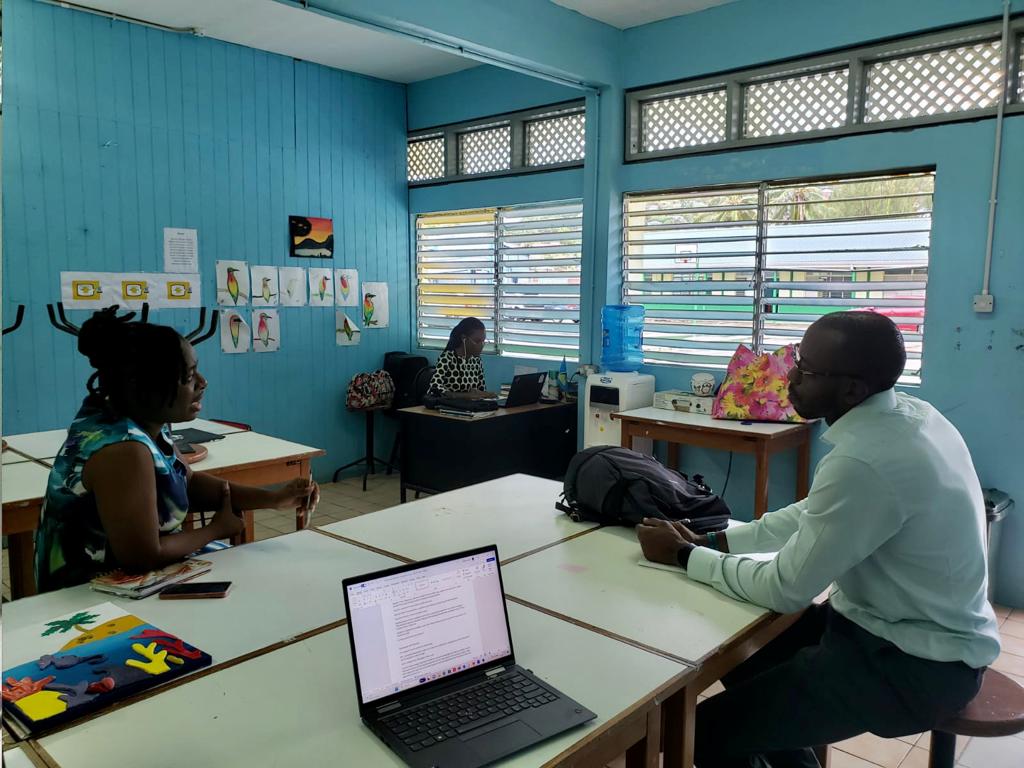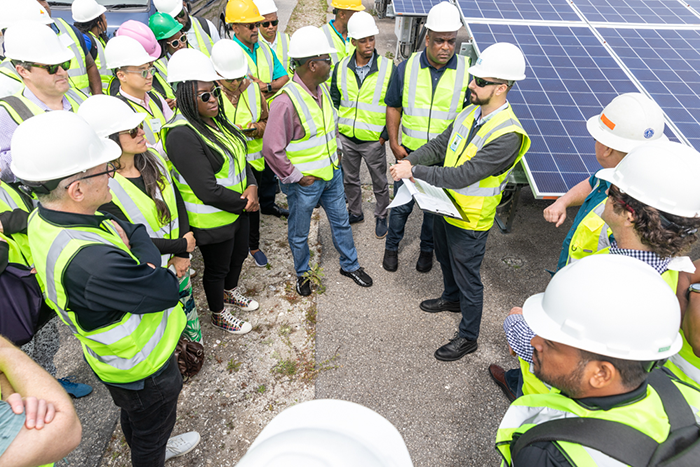
RMI’s Catalytic Climate Capital Initiative: Unlocking Clean Energy Investment in the Global South through Private, Public and Philanthropic Partnerships.
RMI seeks private and philanthropic partners to scale its energy transition efforts across the Global South. The goal: 10 GW of bankable renewable energy projects over the next three years.
In developing and emerging economies in the Global South, the time for mature clean energy technology pilot projects is over. It is time for full scale deployment of commercially proven clean energy technologies to meet growing demand and replace uneconomical fossil fuel generation. This requires de-risking portfolios of investments that meet international financing requirements instead of focusing on a select few grant-funded demonstration projects. It also requires supporting local project developers to do the real work on the ground.
Project developers are the muscle of the energy transition. They might also have the hardest job to make it a reality. Before banks can loan $1 million for a 1 megawatt (MW) solar farm or $100 million for a 100 MW solar farm, project developers race to complete a daunting checklist to raise bank financing before their own money runs out.
Developers must pay for feasibility and environmental impact studies, apply for interconnection positions in the electric grid, engage communities, negotiate contracts with construction companies and suppliers, win over the local community, secure government permits, and, most importantly, sign up customers to buy their clean energy on good terms. At the same time, they must pay monthly overheads to keep the lights on in the office, despite only making money when they sell a project or raise financing a few times each year; projects can routinely take 3–5 years to develop. Walking this tightrope is even more difficult in the Global South — where a myriad of project and market risks often lead to unforeseen costs (known as soft costs) and perceptions of higher risk which often leads to high interest development capital and inflated expectations on returns on investment.
Collectively, this has prevented the clear business case for renewables from being realized. In Global South markets, governments and utilities need to develop conducive policy, regulation, and integrated resource plans to create the enabling environment, which is foundational for a country to achieve its energy transition goals. Very few private sector developers and investors are willing or well placed to take on this work that is a prerequisite to building a robust pipeline of clean energy projects. RMI’s role in the clean energy ecosystem, its capabilities and reach in the Global South, and focus on radical implementation, uniquely positions RMI to address this market failure.
Project Preparation and Development Facilities: A Win for Developers, Investors, and Communities
The climate finance community in the Global South must move from kW-scale, grant-funded pilots to GW-scale. RMI has demonstrated one way to develop and finance a programmatic approach to the energy transition through its first program incubation in the Global South: over the last 8 years, the Islands Energy Program has partnered with governments, utilities, and developers to deliver a multi-tiered program across 20 countries in the Caribbean Islands, centered on energy planning, capacity building, and project preparation and development.
Today RMI has a mature pipeline of early-stage renewables projects totaling over 350 MW in the English-speaking Caribbean alone.

In order to scale this support across the Global South, RMI has established “Project Preparation and Development Facilities” (PPDFs) in the Caribbean, Southeast Asia and Sub-Saharan Africa to support utilities and project developers complete progress projects, secure commercial financing, and bring projects online — while building their capacity to scale this work independently in the future.
As developers complete each item on their checklist, the project becomes more attractive for investment, which increases the chances banks’ credit committees will approve financing. A relatively small PPDF investment of support can de-risk a project and create a significant multiplier effect (what we call the catalytic ratio). In Saint Lucia, for example, RMI’s $400,000 PPDF generated a $7.4 million final project investment; in the Bahamas, $200,000 led to $2.7 million; in Monserrat, $600,000 created $9.2 million.
In fact, RMI just supported the preparation of a portfolio of 8 solar and battery storage microgrid projects at critical facilities across St. Lucia, presenting an example of the PPDF’s value in action. The sites include the nation’s largest public hospital, largest water treatment and pumping facility (which serves up to 60 percent of the population), and a number of schools that serve as emergency shelters. Once implemented, St. Lucia will strengthen island-wide resilience. More importantly, local stakeholders learned by doing every step of the way, building the capacity to replicate and scale this work independently in the future.

RMI’s Ian Welch-Phillips. who managed this project, shared project success: “It was great to see the palpable buy-in and excitement about the project, across all stakeholders — from the regulator and government to civil society organizations and facility managers. At the recent implementation workshop, all of the participants were fully engaged, with excellent group discussions. The National Utility Regulatory Commission (NURC) was pleased with the results and are fully committed to pushing the portfolio projects through to full implementation to bolster resilience and drive electricity cost savings."
Where We Are Now
Leveraging knowledge and expertise of over 8 years of preparing projects in the Caribbean, RMI is looking for partners to scale the PPDF model in the Caribbean, Southeast Asia and Sub-Saharan Africa. For the Caribbean, we aim to mobilize a minimum of $15 million for the PPDF to develop a 350 MW, $800 million Caribbean renewables investment pipeline over the next 12–18 months. Philanthropies and impact investors can make the biggest impact by funding PPDFs with grants and/or concessional equity, leaving private investors to provide the larger construction loans once projects are sufficiently de-risked.
Much of the 350 MW portfolio will be owned by utilities, so corporate-level (rather than project-level) loans directly to utilities will be crucial. For example, Consorcio Energetico Punta Cana Macao, a utility in the Dominican Republic, recently secured a three-year, multi-asset, multi-jurisdictional “warehouse” loan from Bank of America and a multilateral development bank to build renewable energy and clean transport infrastructure in small island developing states. PPDFs can help other utilities secure similar financings to build assets themselves or procure clean energy from IPPs. As we mature the Caribbean renewables market, we’ll need local commercial banks and institutional investors to increasingly fund projects — especially to take on the currency volatility that foreign lenders often shy away from.
Utilities may choose not to finance projects from their balance sheets and instead outsource project development to Independent Power Producers (IPPs). Jamaica’s national utility, for instance, awarded a 20-year, $85/MWh contract to Neoen, MPC Capital and Rekamniar’s 50 MW Paradise Park solar project in 2017. France’s development finance institution (DFI) Proparco, the Netherlands’ FMO, and USAID helped finance the $65 million project, which came online in 2019 as the largest in the Caribbean (see case study). The Clinton Foundation also supported the project, showing how philanthropic dollars supercharge debt and equity finance. That deal structure must scale and evolve as the Caribbean renewables market matures. Private banks and private equity firms can finance renewables and instead allow DFIs and philanthropies to target higher-risk, emerging technologies like battery storage. DFIs must crowd-in private finance, not crowd it out.
From Scaling Renewables in the Caribbean to the World
RMI has identified the development of energy projects as a key focus area by creating an entirely new catalytic climate capital team. The goal of this team is to scale the Caribbean PPDF model to Sub-Saharan Africa and Southeast Asia, targeting a 10 GW project pipeline in three years. RMI has over 100 staff around the world, including China, India, Nigeria and other Global South geographies, dedicated to co-developing 86 projects alongside utilities and IPPs. RMI seeks to partner with philanthropic funders, DFIs, impact investors, and commercial lenders to scale our PPDF model in current and new geographies. To develop and implement the PPDFs, the team will draw on RMI’s 700+ technical experts, with decades of experience across policy, energy modeling, development finance, procurement, engineering, and community engagement.
